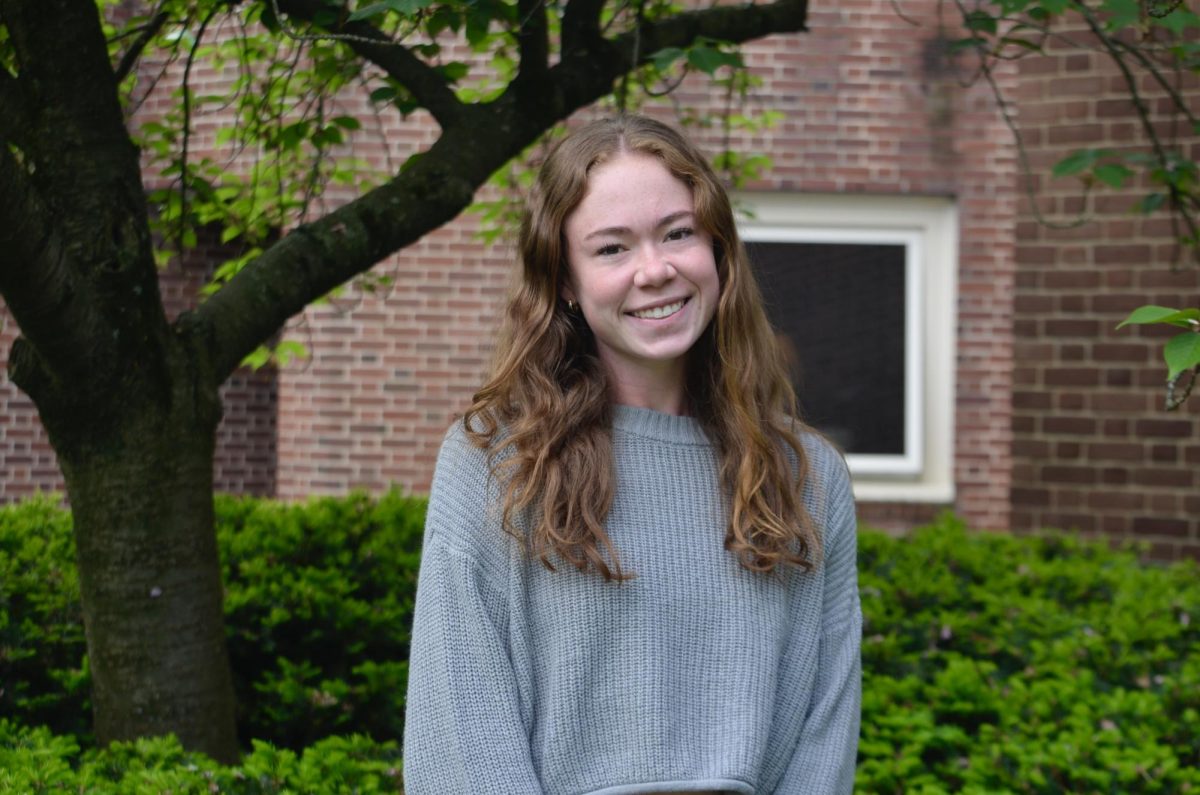In an event co-sponsored by the Center for Access and Success, the Center for the Study of Race, Ethnicity, and Gender and several other Bucknell departments, Janel Pineda was invited to read from her debut book, “Lineage of Rain,” on Tuesday, April 9th. The book was published in 2021, and explores themes of family connection, diasporic history and personal healing.
Pineda is a first-generation college graduate with a BA in English from Dickinson University. During her time there, Pineda co-founded a Latina Discussion Group, in an effort to provide an opportunity for Latina students to be in community on a predominantly white campus. Her continued work after graduation has explored avenues through which she hopes students will consider larger themes of discrimination and equality; she’s in the process of completing a PhD at the University of California, Los Angeles in the Department of Chicana/o and Central American Studies.
Before taking to the podium at Bucknell this past week, Pineda was introduced by Dani Perdomo-Chavez ’25, a Spanish/Latin American Studies student. Pineda’s work has greatly impacted Perdomo-Chavez, who “feels like [she’s] being heard” in the poems Pineda has published— “I’m seeing myself in this art,” Perdomo-Chavez said, adding that she feels connected to her own family history and heritage thanks to Pineda’s words.
Pineda began her reading with a poem “honoring Central American women”; the piece itself was dedicated to “Siguanaba,” a mythological figure who has been reclaimed by feminist movements as a protector of women. The first portion of Pineda’s reading continued to focus on ideals of womanhood and feminine community. Her next poem, through the vessel of a recollection of her time visiting El Salvador at the age of ten, told the story of the matrons of her family, and how their influence has reached her across continents.
With an enduring commitment to her ancestry and strong sense of community, Pineda read her poem “Rain,” which she referred to as “a bit of an origin story.” Pineda’s goal with “Rain” was to honor “different kinds of knowledges,” not just collegiate and academic ones; she wanted to emphasize that she considers her grandmother, born in El Salvador and informally educated, to be the first person who introduced her to “the power of words and stories.” “Rain” is among a collection of poems Pineda has written about the women of her family— women who have “survived by chasing the sun” of a better and more secure future.
The next few poems Pineda read were instruments of deeper thought: “How English Came to Grandma” and “How English Came to Me” both focused on how she and her culture have been influenced by external power and American culture over the course of her lifetime. After reading those heavier pieces, Pineda switched gears and read a series of poems that she categorized as “tributes.” Topics ranged from eldest daughters (namely, Pineda’s older sister) to L.A. to her father’s profession.
Pineda finished her reading with several poems on Salvadoran civil war, diaspora and hope for the future; the three poems in this vein, “When the Death Squads Come,” “A Love Letter to Diaspora” and “And It Is Green” were all a statement to Pineda’s skill with weaving emotion and history into a cohesive, moving narrative.
At the end of the reading, the floor was opened to Q&A with the assembled audience. Students expressed sincere appreciation for the relatability of Pineda’s work.






















